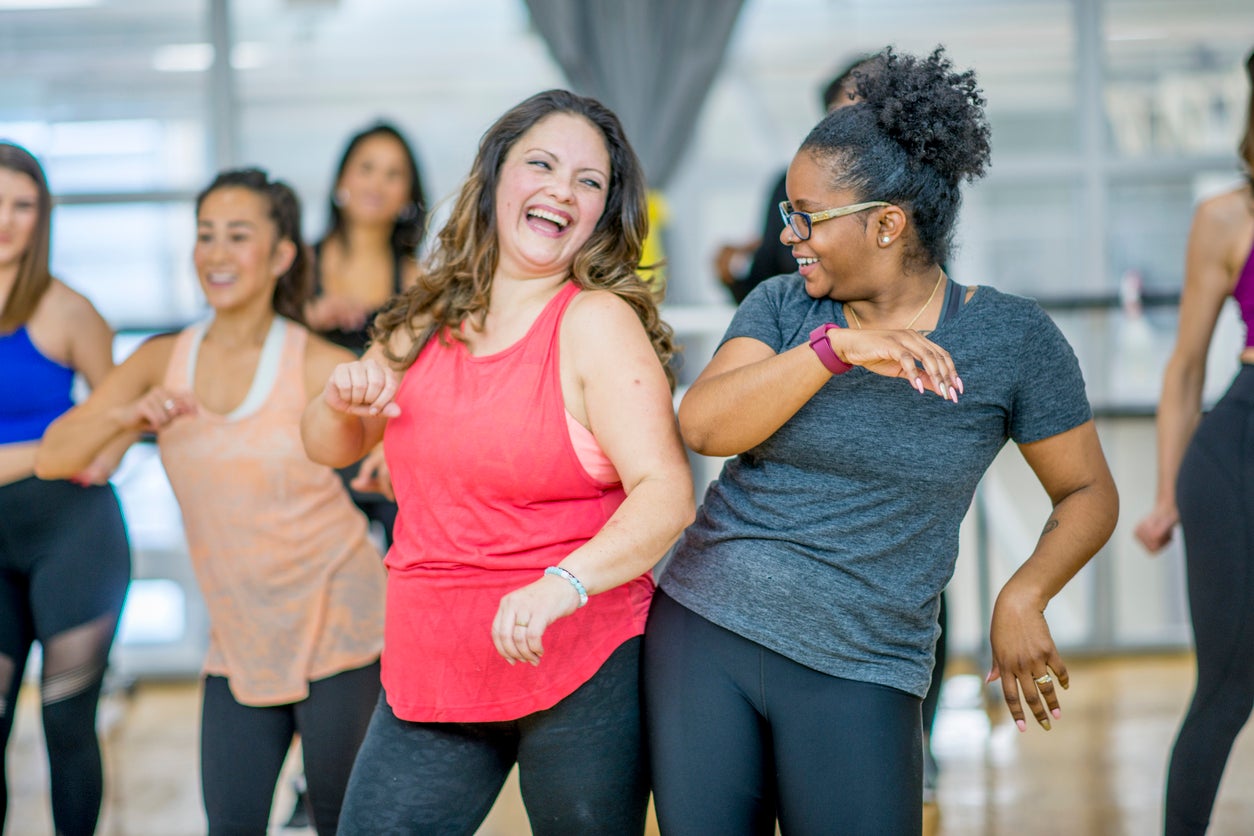Nearly half of British women aren't getting enough exercise, study finds
Women are less active than men, with four in 10 British females not getting enough exercise

Almost half of British women are not doing enough exercise for their health, according to a new global study by the World Health Organisation (WHO).
The research, which assessed 1.9 million participants across 168 countries, found that 36 per cent of British adults are insufficiently active, with women moving even less than men — 40 per cent of females in the UK do not do enough exercise.
The gap between genders isn’t consigned to the UK though — across the world, women are eight per cent less active than men, according to the study published in The Lancet Global Health. The only parts of the world where women are more active than men are east and southeast Asia.
Not getting enough exercise puts women at greater risk of developing cardiovascular disease, type 2 diabetes, dementia, mental health problems and some cancers than men.
In the league table of countries’ activity levels, the UK falls in the top third — but for inactivity. It also highlights that levels of inactivity are on the rise, having risen by five per cent amongst Brits over the past five years.
Experts recommend people do 75 minutes of intense activity such as running or 150 mins of moderate activity like walking per week, so why are so few women hitting these targets?
“This study has really put the spotlight on this difference between men and women, with women doing less physical activity than men in most countries,” Dr Fiona Bull from WHO told the BBC’s Today programme.
“The UK is similar and it has one of the larger differences of eight or nine per cent. Why? It may be explained by some of the multiple barriers to being physically active - most of all it’s the environments and the available places and spaces that are affordable and convenient.
“So when we say ‘be active’, you actually need to have an activity you enjoy first and foremost, but then be able to afford and have access conveniently and be able to participate. These barriers may be affecting women more than men.”
“The gender gap in physical activity [...] reveals a health equity issue where women face more environmental, social and cultural barriers to participate in physical activity, particularly in their leisure time,” adds Dr Melody Ding from the University of Sydney in Australia.
Personal trainer and influencer Oenone Forbat says she believes women could up their activity levels by focusing on moving more throughout the day.
“A super important factor to consider is NEAT - non-exercise activity thermogenesis,” she explains to The Independent. “This is energy expenditure achieved outside of regular exercise; walking to work instead of talking the bus, talking the stairs instead of an escalator, parking your car a little further away.
“All of these little changes can add up to help increase your activity levels as well as caloric expenditure throughout the day.”
If you’re struggling to find the motivation to exercise, top personal trainer Nicola Addison, who’s trained Elle Macpherson, Daisy Lowe and Erin O’Connor, has also shared her advice with The Independent.
Four tips for increasing your activity levels:
1. Ask for help
It’s OK to not be able to do it ALL by yourself. Acknowledge where you need assistance and then go and find it. There are so many resources available to you. A lot of which are free of charge. Seek help where you need it.
2. Start somewhere
It doesn’t matter where you start, but just start! Don’t put it off till next week. Don’t say to yourself you need to get fit first… just start! It’s the hardest, most intimidating part…but it’s achievable no matter how small that start is. Do something different TODAY!
3. Manage your time and do it old school
Planning time to be active, organising what to eat, getting up earlier in the morning all takes planning and a lot of it! Making activity a priority is a step in the right direction. Small steps = big wins.
Don’t set yourself up to fail by creating unrealistic goals. Start off small and tick off in your diary when you have completed your task. Charting your progress is incredibly important to see progression.
4. Find something fun to do
Most the time it’s not what you do, it’s how often you do it. If it’s not fun, you simply won’t want to do it! You have stopped before you have even started! Yes, potentially there are ‘more’ efficient ways to achieve goals (doing resistance work, compound movements etc) but if you love Zumba and you are going to do Zumba three times a week… stick to Zumba!
Join our commenting forum
Join thought-provoking conversations, follow other Independent readers and see their replies
Comments
Bookmark popover
Removed from bookmarks